![]()
» Why should Iran Trust Europe?
This editorial discusses the necessity of Iran continuing to trust Europe despite Donald Trump’s position against JCPOA.
The editorialist holds that Europe will not wriggle out of its commitment to JCPOA for the following reasons. First, EU consists of countries, which legislated international laws sooner than any other country; obeying those laws is one of their fundamentals. Moreover, EU has repeatedly supported JCPOA regardless of U.S. administration. However, it should be mentioned that Europeans are only backing JCPOA, not Iran with which they disagree on different matters. On the same note, EU needs to trust Iran as well.
Those who question EU’s trustworthiness, are actually concerned about banking transactions between Iran and EU. The point is Iran and Europe’s banking relations have nothing to do with European countries. It is European banks which should trust Iran. As for European countries, they support Israel and are in consensus with U.S. in this regard. This is the issue, which might disrupt Iran-Europe relations and needs to be addressed.
On the whole, there is no reason for EU to break its commitments. What Europe cares about is its own interests and how Iran or JCPOA can serve them. It is highly unlikely that EU would sacrifice its trade with U.S. for Iran’s sake.
An editorial in Arman daily on Oct. 18th, 2017
» US, Iran: First Round is Over, Competition Continues
This editorial focuses on potential new measures by U.S. against Iran after President Trump’s recent announcement regarding JCPOA.
In his recent speech on Iran, Donald Trump did not announce U.S. will leave JCPOA but asked Congress to make the decision. While Congress will not decide to exit JCPOA as there is no legitimate reason to do so, it can increase sanctions against Iran. The new sanctions targeting Iran might be related to the following issues: human rights violation, missile activities, supporting terrorism, and disrupting stability in the region.
None of those four categories concerns the nuclear issue. Therefore, no matter if Iran insists on fulfilling its commitments, Congress will say that these sanctions have nothing to do with Iran’s nuclear activities. Neither can Europeans protest if Congress imposes new sanctions against Iran, for U.S. has not left JCPOA. Besides, major western companies doing business with Iran will find themselves in a difficult position, as they do not want to jeopardize their economic relations with U.S. because of their deals with Iran.
The editorialist concludes that although Trump did not oppose JCPOA in his recent speech, Americans can still put Iran in dire straits. So the most important question is this: Shouldn’t Iran start to decrease tensions with U.S.?
An editorial in Arman daily on Oct. 17th, 2017
» Iran’s Markets: Isolated Islands?
This editorial criticizes the comments of Iran’s vice president for economic affairs regarding U.S. President’s recent speech on JCPOA.
Mohammad Nahavandian, vice president for economic affairs, has emphasized that Iran’s markets had no negative reaction to Trump’s recent threats against this country. This was nothing new, given that Iran’s markets have no relations with other countries’ markets in the world. Unlike Turkey, South Korea or other developed countries, stock, currency, housing and car markets are like isolated islands in Iran and will not lose balance after a speech. Nahavandian should have elaborated on those issues.
Hopefully, Germany, France, and England, as well as Japan, South Korea, and China that have recently partnered with Iran, will continue their cooperation with no fear of the U.S. sanctions. In order for this to happen, there should be a consensus between all political parties in Iran, including both government supporters and opponents.
To sum up, the role of vice president for economic affairs is to reassure Iran’s foreign partners of continuing their relations with this country. He also needs to avoid talking to Iranian people in a way that they lose trust in government officials in case of abnormal fluctuations in stock and currency market in near future.
An editorial in Ebtekar daily on Oct. 16th, 2017
» Rouhani and Reformists in Era of JCPOA Failure
This editorial criticizes Iran’s President and his government for JCPOA and offers suggestions for their behavior in the post-JCPOA era.
The failure of JCPOA– which will definitely happen one of these days– has nothing to do with sanctions against IRGC or Donald Trump. Now that there is a 180-degree turn in positions of JCPOA team; namely, even FM Zarif is talking about Iran’s exiting JCPOA and Rouhani has put aside his criticisms of IRGC, they should behave in a way that will not cause more damages.
First, instead of shirking responsibility for JCPOA, they should apologize to Supreme Leader and people. Second, the JCPOA team needs to reconsider their remarks about IRGC and repent.
Third, Rouhani and his government have made big promises due to JCPOA that cannot be neglected now. They need to tell the truth to people: that Iran’s economy was never in crisis, sanctions’ effect on the economy was no more than 30 percent, JCPOA was not supposed to lead to low prices, and warning of war was a wrong calculation.
Fourth, reformists are as responsible as Rouhani for JCPOA and need to apologize for it. Fifth, Rouhani and his government owe an apology to those opposing JCPOA as they have mistreated them for the past five years.
An editorial in “AsreIranian” Newspaper on Oct. 15th, 2017
![]()
♦ Ali Larijani: We will make U.S. regret it
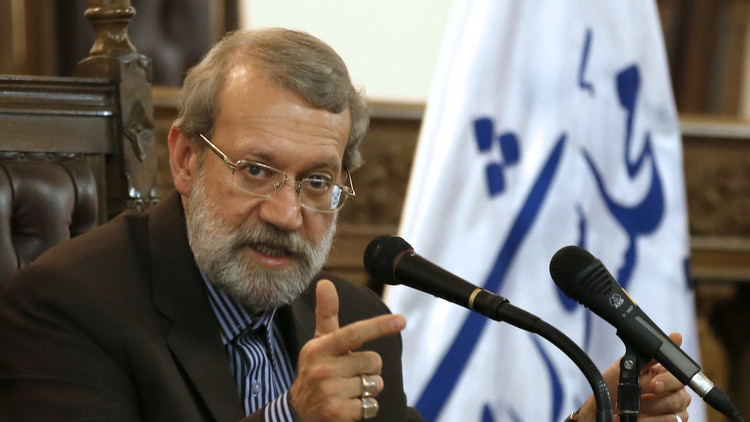
In an interview with NTV and Russia One, Speaker of Iranian Parliament Ali Larijani said with regard to Iran’s reaction to Trump’s remarks about Iran’s nuclear deal issue that “Trump’s words must not be taken seriously, as JCPOA is not a bilateral deal.” When asked if Iran is ready to continue its nuclear program in case the U.S. pulls out of the nuclear deal, Larijani said that Iran has a formulated plan and a clear law in this regard, adding that “we will do something that will make Americans regret.”
Etemaad
♦ Kurdish lawmaker: Cancellation of Kurdish referendum due to Qassem Suleimani
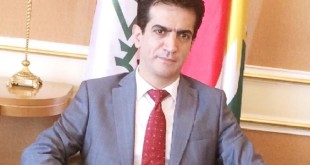
Kurdish MP Massoud Heidar announced that the issue of Kurdish referendum has come to an end with mediation of Qassem Suleimani, commander of Quds Forces. According to Arabic Sputnik, Heidar announced in his Facebook page that recently after the referendum, under the supervision of Iraqi PM Heidar Al-Ebadi and with mediation of Qassem Suleimani, there has been a 9-article agreement between Hadi Al-Amer, one of the commanders of Popular Mobilization Forces, and Bafel Talibani, one of the commanders of Patriotic Union of Kurdistan, according to which the issue of referendum has been revoked indefinitely.
Ebtekaar
♦ Pirates ask $1500 for each angler
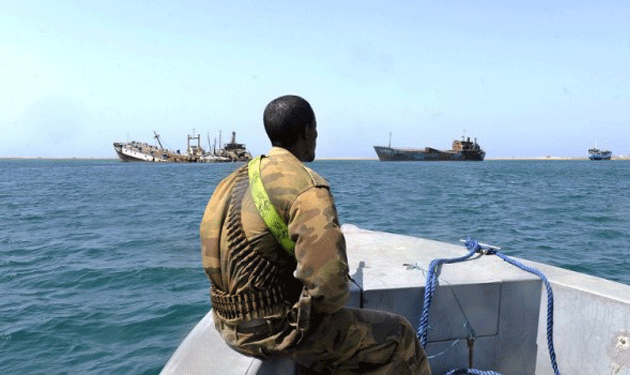
Ali Afshar, managing director of Fishermen Cooperative in Chabahar, Iran, said with what happened to Iranian fishing dhow a couple of days ago, the number of Iranian abducted fishermen reached 44. He added that pirates ask $1500 for releasing each abducted fisherman, “but if we look at their lives, we will see that they don’t have even $100.”
Arman Emrooz
♦ 9 million illiterates in Iran
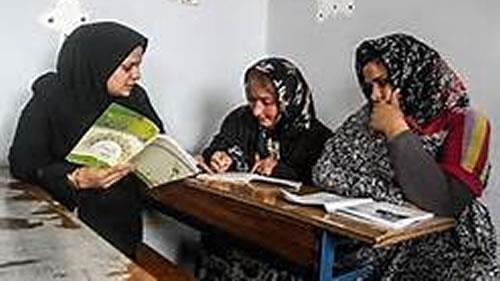
Minister of Labor, Cooperatives and Social Welfare Ali Rabiie said there are 9 million illiterates in Iran, including dropout children. He added that with follow up of Social Welfare Organization, 170 thousand dropout children were identified and returned to school.
Mardomsalari
♦ Bagheri heads to Syria
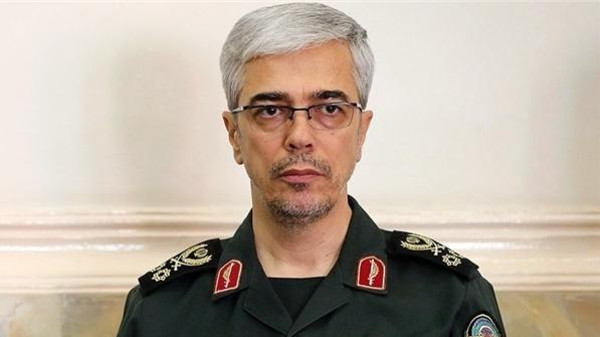
Iran’s highest ranking military official headed towards Syria. Major General Mohammad Bagheri, Chief of General Staff of Armed Forces of Iran was welcomed in Damascus by Osameh Khozor, head of political bureau of Syrian Army. Bagheri is going to meet with Syrian minister of defense and chief of General Staff of Syrian Army. In addition to military meetings, Bagheri will also meet with Bashar Assad. This trip is said to aim at “enhancing military and defense cooperation between Iran and Syria, consultation, and continuation of cooperation to fight terrorism, as well as strategies for regional stability and secrrity.”
Shargh
♦ Manufacturing units increase air pollution in Mashhad

Head of urban environment organization in Mashhad municipality Mohammad Pazira said one of the major problems in Mashhad and metropolitan cities in the country is air pollution. He added that currently there are 8000 manufacturing units around the city of Mashhad, which is a factor in increasing air pollution in this city.
Jomhouri Eslami
♦ Zarif: U.S. wants military dominance
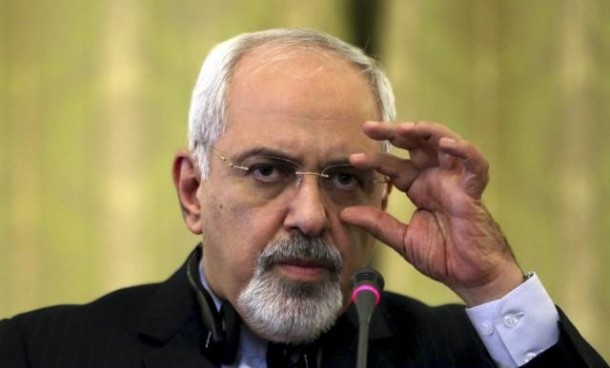
Iran’s Foreign Minister Mohammad Javad Zarif wrote on his personal twitter account “Iran does not seek to exclude other regional actors.” In an article published in The Atlantic, Zarif said “the U.S. military presence in the region now aims to counter not just threats to America’s own interests, but also supposed threats to the very same allies that have supported the kind of terror now being visited on the cities of Europe and the United States.”
ISNA
♦ National Trust Party: People support IRGC
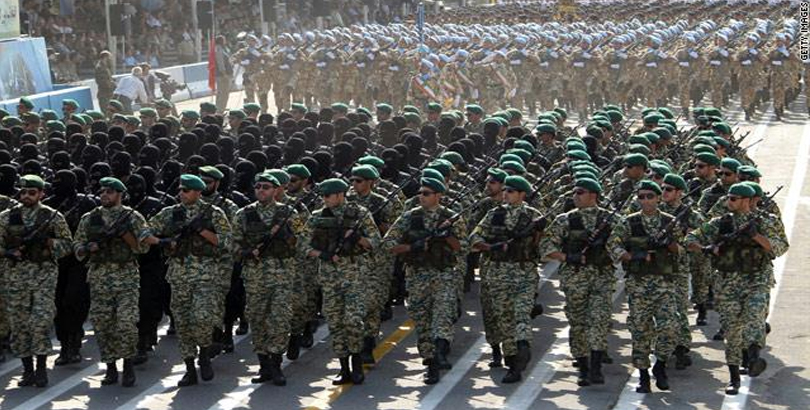
Political Bureau of National Trust Party issued a statement regarding Trump’s recent remarks about JCPOA, emphasizing that “Iranian government and nation will never forget the bravery of Iran Revolutionary Guards Corps (IRGC) during the era of stabilization of the regime and in the holy war [Iran-Iraq].” The statement adds, “U.S. efforts to create division between the government and the people, as well as to separate IRGC from the people, would only result in more unity and solidarity between people and governmental and revolutionary institutes.”
Shargh
♦ Golpayegani: Trump is good for managing zoo

Member of Assembly of Experts Hashem Bathai Golpayegani reacted to Trump’s remarks against Iran, saying that he is “qualified to manage a zoo in the U.S.”. He said he is sorry for the U.S., adding that America is a rich country, with “poor indigenous people, upon whom a violent, unwise man is imposed as the president.” Golpayegani recommended to the wise, educated people in the U.S. to appoint Trump to a position in a zoo before it is too late.
Entekhab
♦ Chief Justice warns against publishing analysis in line with enemy
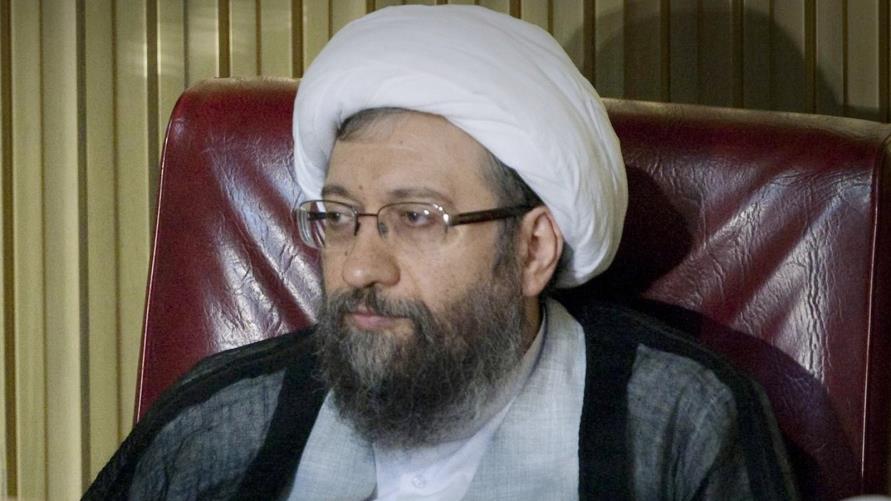
Head of judiciary branch Sadegh Larijani warned those individuals and media that give analyses in alignment with the enemy under the current situation. Larijani said recent remarks and positions of U.S. officials have provided an “opportunity to create more solidarity between people and officials”.
Sadegh Larijani urged “this is unfortunate for us to make remarks similar to those of the enemy’s.” “Today people need more solidarity and correct understanding of the enemy, so the enemy must not be embellished,” he added.
Vatan Emrooz
♦ Najafi: I have heard my images are banned from media
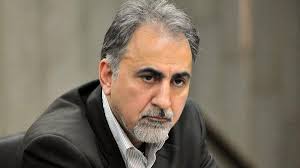
On his 50th day as Tehran’s mayor, Mohammad Ali Najafi sat in front of the media but didn’t expect to face more than 200 foreign and domestic media. In response to a question as to his being banned from TV programs and rumor of his images being banned, Najafi said, “I had a meeting with commanders of law enforcement forces and even had an interview with TV channels, but none of these was broadcast.” He said he has heard about being banned from the media but doesn’t know if it is true or not.
Shargh
♦ Rouhani’s cultural advisor slams Saeed Jalili
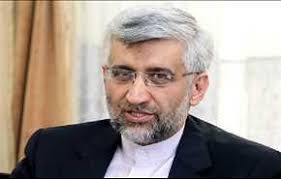
Following the twitter of Saeed Jalili, nuclear negotiator during Ahmadinejad’s presidency, saying “There must be JCPOA course in university; this is scientific issue, not political; JCPOA is 159-page important document, in which the country will be entangled for years,” Hessamoldin Ashena, Hassan Rouhani’s cultural advisor, wrote in his own Telegram account, “If only our capitalist brother would publish the report of 6.5 years of his negotiations, instead of constantly teasing the negotiators.”
Arman Emrooz
♦ Iran’s economic growth to reach 3.6% this year
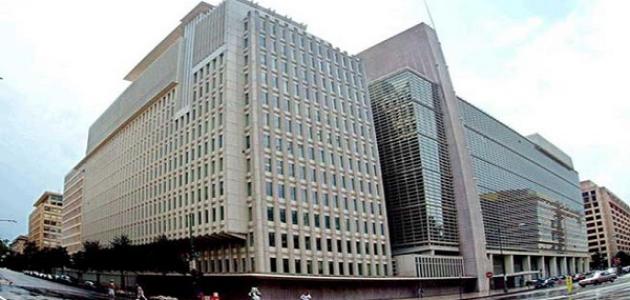
World Bank predicted that Iran’s economic growth will reach 3.6% this year. In its latest report, “Economic Prospect of Iran”, World Bank has projected a stronger economy for Iran in 2018-2019, saying that given more political and economic stability after the reelection of Hassan Rouhani as president, investment growth will be positive and faster.
World Bank has also predicted that Iran’s economic growth in 2018 and 2019 will be respectively 4% and 4.3%.
Abrar Eqtesadi
♦ Montajabnia: U.S. violates obligations due to weakness
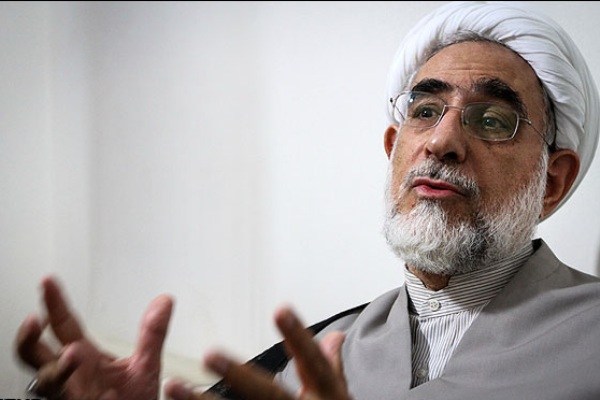
Rasoul Montajabnia, deputy chairman of National Trust Party, said about Trump’s speech that it isolated the U.S. more than Iran, adding that a powerful country like America has become so weak and powerless that it has to violate its pledges and obligations. He called U.S. president’s remarks about JCPOA obvious violation of obligations by the U.S. government.
Shahrvand
♦ France 24: Macron’s trip to Tehran has important message

France TV network, France 24, mentioned Donald Trump’s recent positions towards the nuclear deal with Iran, saying that future trip of France’s President Emmanuel Macron to Iran will have a significant message for Iran. France 24 added that Emmanuel Macron has decided to go to Iran under the current, sensitive conditions – a trip that has had no precedent in the history of Iran. Since 1976, Macron is the first French president going to Iran.
Jahan Sanat
♦ Qassem Suleimani in Iraqi Kurdistan
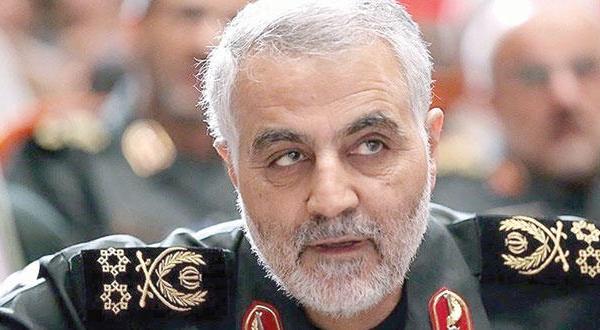
Qassem Suleimani, the commander of Quds Forces, has gone to Erbil. According to one of the Kurdish officials, Suleimani has gone to Iraqi Kurdistan to negotiate about the escalation of tensions between Kurdish officials and the Iraqi government, following the independence referendum in Iraqi Kurdistan.
Alireza Rahimi, the member of National Security and Foreign Policy Commission in the Parliament, pointed out to Suleimani’s trip to Iraqi Kurdistan, announcing meetings between Iranian officials and Iraqi officials about the independence referendum in Iraqi Kurdistan.
Shahrvand
♦ Askari: Iran and Syria share cultural grounds
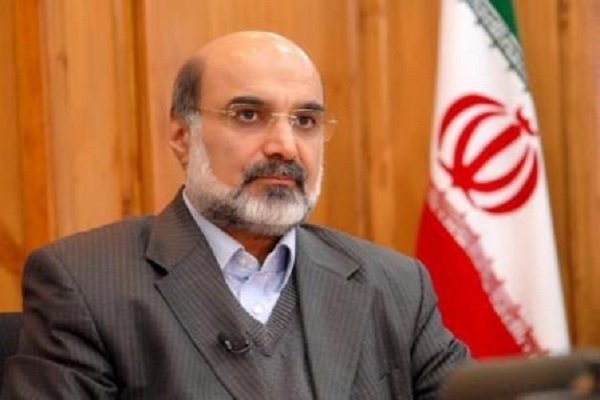
Head of IRIB Ali Askari, in his meeting with Culture Minister of Syria, pointed out to numerous common cultural denominators between Iran and Syria, saying that the resistance culture is the main cultural common denominator between the two countries. Askari added, “we can strengthen the resistance culture with joint productions in different fields.”
Asr Iran
♦ Italian Banks to come to Iran
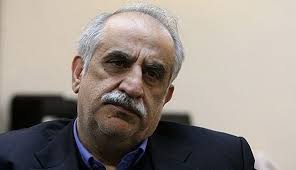
Economy Minister Masoud Karbasian pointed out to “good negotiations” between Iran and Italy, expressing hope that banking cooperation agreements will be signed between the two countries next week.
Economy Minister who has gone to Washington for taking part in the fall summit of World Bank and IMF met with Italian treasury minister. In this meeting, he pointed out to a tripling of transactions between the two countries in the first 6 months of 2017, compared to the same period last year, stressing the necessity of expanding economic relations.
Jahan Sanat
♦ Trial of number of governors

Head of Tehran’s justice department Gholam-Hossein Esmaeeli said the trials of some governors charged with election’s violations have been held, but no sentence has been issued yet. Even though the number of these accused governors had been previously announced as 12, Esmaeeli said it is more than that, but “I don’t remember the exact number now.”
He also said that case of 20 managers charged with “receiving astronomical salaries” has gone to the court, and has been referred to two branches that specially deal with crimes of government employees.
Arman Emrooz
♦ Harassment of 90% of children in hangouts

Managing director of Social Services of Tehran Municipality Reza Ghadimi talked of transiting children of foreign citizens to Tehran for beggary, adding that 90% of working children have been harassed in hangouts. He continued many of these children are forced by their parents who are not even qualified for taking care of them to go to streets for beggary, urging that these children are exploited by their families.
Ghadimi went on to say that by implementing a plan for rounding up working and begging children from streets of Tehran, 416 children were seized – 355 of whom were from surrounding countries.
Arman Emrooz
♦ U.S. new sanctions against three Iranian companies

U.S. Department of Treasury put sanctions on three Iranian companies and a Chinese company for relation with Iran Revolutionary Guards Corps (IRGC). In a statement published on Friday, U.S. Treasury Department’s Office of Foreign Assets Control designated three Iran-based companies pursuant to global terrorism Executive Order 13382 for their activities related to tow key elements of Iran’s military.
Shahid Alamolhoda Industries was designated for being owned or controlled by Iran’s Naval Defense Missile Industry Group (SAIG). Rastafan Ertebat Engineering Company was designated for having provided or attempted to provide, financial, material, technological goods or services in support of SAIG and IRGC. Fanamoj was designated for having provided or attempted to provide, financial, material, technological goods, and services in support of IRGC.
Donyayeh Eghtesad
♦ Differences escalate between IRGC intelligence organization and intelligence ministry
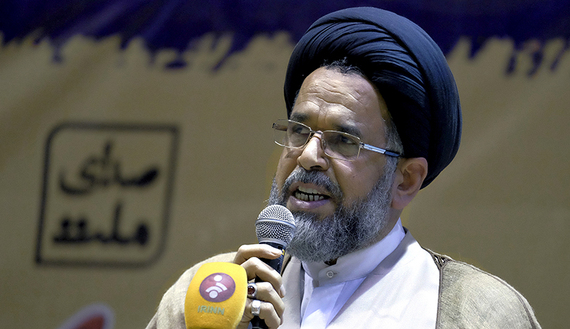
Iran’s establishment doesn’t even try to cover differences in the media between IRGC intelligence organization and Iran’s intelligence ministry. In the latest example of these differences, these two institutes openly disagreed over 5-year imprisonment sentence issued for a member of negotiating team for the nuclear deal, Abdulrasoul Dorri Esfahani.
Intelligence Minister Mahmoud Alavi has said Dorri Esfahani is not only not a spy but has cooperated with his ministry, stressing that the authority for recognizing espionage-related issues is intelligence ministry. After this, news agency affiliated with judiciary branch responded to Alavi that intelligence minister is not the only institute in this regard, and other institutes like IRGC are in this position as well.
BBC Persian
♦ Salehi: Iran to cease implementing additional protocol in case of rescinding JCPOA

Head of Nuclear Energy Organization of Iran Ali Akbar Salehi warned if JCPOA is disrupted, Iran will stop implementing an additional protocol to the nuclear deal, as Iran is now implementing it voluntarily, and this protocol has not been ratified by Iran’s parliament. Salehi added Iran is committed to cases of inspections as stated in JCPOA, but will not give in to any demands outside that framework.
He also condemned U.S. president’s recent speech, calling his words “abominable” and “vulgar”.
Bartarinha
♦ Tehran has the highest rate of divorce in Iran

Head of the national working team to control and decrease divorce Mohammad Eshaqi said the highest rate of divorce in the country belongs to Tehran, Alborz, and Khorasan Razavi. Eshaqi added that educations before and during the marriage must continue for the first 5 years.
Ebtekaar
